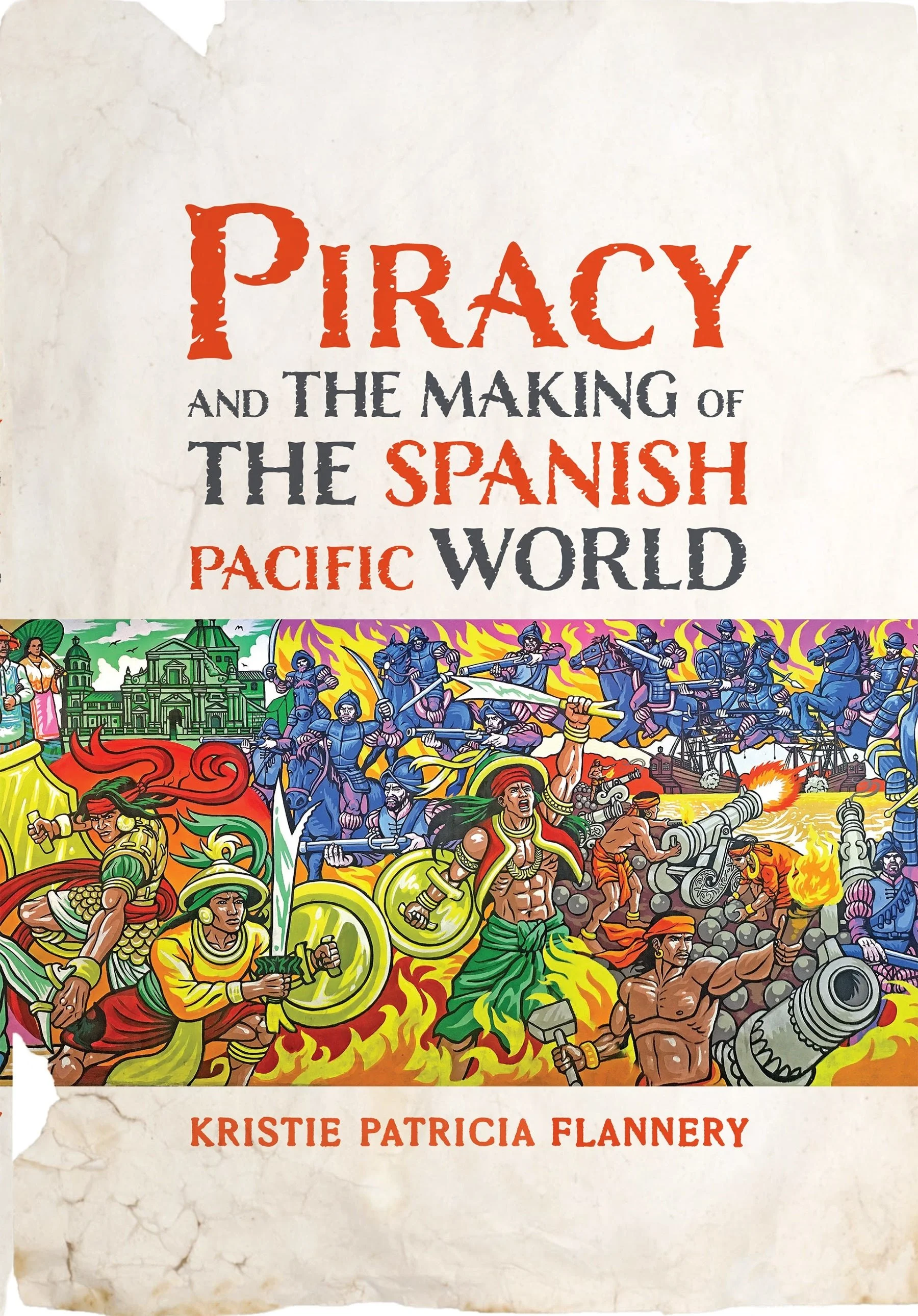Piracy and the Making of the Spanish Pacific World (Penn Press, 2024)
About the book
The Philippines was forged in a sea of piracy. This book examines the forgotten coalitions that Spanish colonial officials and militant missionaries negotiated with Indigenous Filipinos and Chinese mestizos to fight against three waves of sea-robbers: the Chinese ‘piratical empires’ of the seventeenth century, the slave-raiding ‘Moro’ pirates from the Islamic southern Philippines that grew powerful in the early eighteenth century, and the British ‘pirates’ that invaded Manila in 1762. The politics of Catholic anti-piracy made Spain’s Asian empire resilient to repeated crises including the British invasion. Piracy also influenced colonial dynamics of social inclusion. Shifting piracy threats defined which Indigenous and migrant communities were integrated into the empire as vassals — an early modern mode of citizenship — and which groups were subject to segregation, expulsion, and even mass executions. Piracy and the Making of the Spanish Pacific World offers a critical reinterpretation of colonial Philippines history by challenging the notion that the Spanish ruled the islands for centuries with brute force alone. Moreover, it deepens our understanding of how maritime violence shaped the trajectories of globalization and of European imperial expansion in this world region.
Order your copy from the University of Pennsylvania Press website
Reviews and Interviews
Review by Diego Luis in the International Journal of Maritime History
Review by Natalie Cobo in Journal of Social History
“Writing China back into history.” Gavin O’Toole reviews Piracy and the Making of the Spanish Pacific World for the Latin America Review of Books.
Review by Cindia Arango López in Not Even Past
Review by Nino Vallen in the Hispanic American Historical Review
Review by Pedro García Guirao in Global Intellectual History
Review by Eberhard Crailsheim in Journal of Historical Geography
“Pirates of the Pacific & the Spanish Empire.” Interview with Suzannah Lipscomb on Not Just the Tudors podcast
Interview with Miranda Melcher, New Books Network podcast
